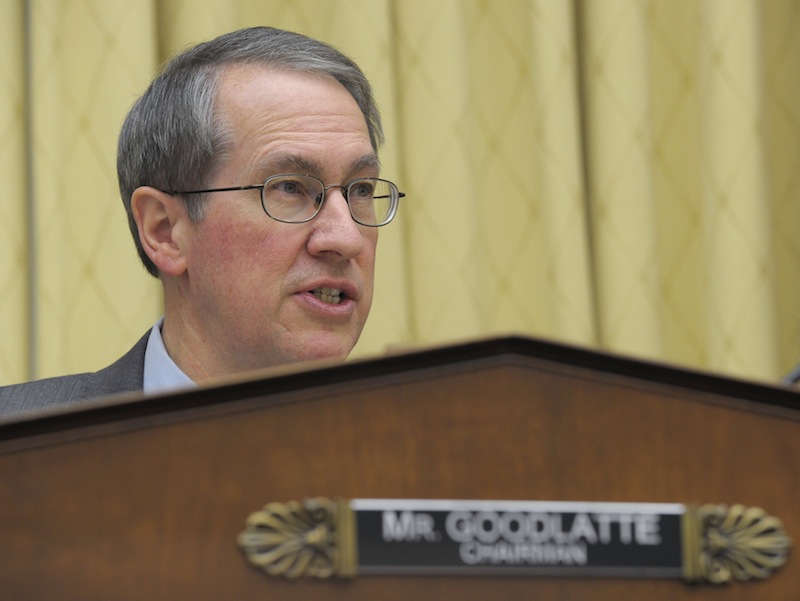Immigration reform’s chances in the House may be in significantly less dire shape than activists feared last week, when Rep. Bob Goodlatte (R-VA), chair of the powerful Judiciary Committee, ruled out a path to citizenship for undocumented immigrants.
Asked by a reporter Wednesday if his position meant that undocumented immigrants legalized under a comprehensive reform plan could never become citizens, Goodlatte replied, “I don’t think that.”
At issue are the fluid and sometimes vague definitions of terms like a “path to citizenship” and “amnesty,” which some Republicans say means undocumented immigrants should be barred from ever becoming citizens and others say means they shouldn’t be granted citizenship automatically.
Pressed for more details Wednesday, Goodlatte opened up some wiggle room on the issue, which activists and politicians pushing for reform say is a must-have in any bill. Mainly, that he was open to reforming the immigration system so that currently undocumented immigrants could eventually apply for green cards — a path that is so difficult now it essentially doesn’t exist.
“Once you have that status you can qualify like anyone else, it seems to me,” Goodlatte said. “Having a system where if you have an unlawful status and then you have another opportunity, whether it’s employment based or whether it’s family based to be able to legalize your status in the future those are good opportunities you can address.”
Goodlatte’s remark came at a breakfast event in Washington sponsored by the Christian Science Monitor.
Goodlatte, whose committee would handle immigration reform legislation, singled out in particular the current 3-year and 10-year bars from entering the country for undocumented immigrants who try to legalize their status by applying for residency through a relative, saying he would be open to modifying it as part of a bill. Goodlatte said that he supported measures to eliminate existing backlogs of green card applicants as well, which could also smooth the path to eventual citizenship.
“If you would address some kind of reform of that aspect of it, you can avail people of an opportunity that they don’t have now,” he said.
Goodlatte’s suggestion that legal channels — although currently very difficult for low-skill workers to access — would be available opens up major possibilites for an immigration bill. Democratic and Republican senators working on a bipartisan bill in the Senate already claim that their so-called “path to citizenship” would — with some exceptions — not give undocumented immigrants any special privileges over legal applicants for permanent residency and would instead route them through the same process.
Asked by TPM whether he felt such proposals by pro-reform Republicans like Sen. Marco Rubio (R-FL) counted as a special path to citizenship, Goodlatte said he had not ruled them out.
“I do have concerns about a lot of the different proposals I’ve seen and rather than negotiate those concerns in public, I think its better to let the process work and see what kind of conseusus we can develop,” he said.









